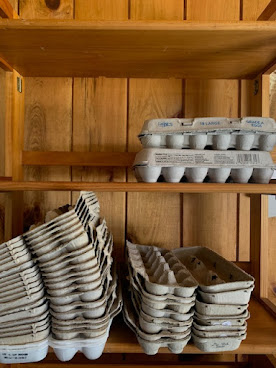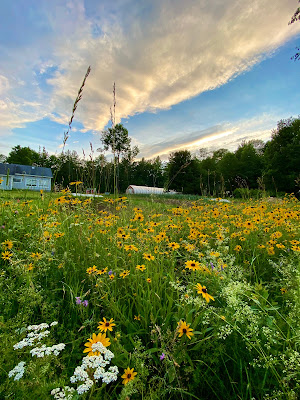Uncertainties within Organic Farming
In a previous blog post we discussed the 'imperfections' found within organic growing, but we failed to mention the many 'uncertainties' organic farmers face, and the challenges they might present. Some examples of uncertainties are the weather (i.e. - too much rain, hot temperatures, cold temperatures), increases in pests (insects and animal invasions), plant bights/diseases, and the list goes on and on... While we can often predict some of these factors and take appropriate steps to mitigate, lots of times, there is only so much that can be done.
For larger, commercial farms, these uncertainties might not present as many challenges because of their ability to use of synthetic fertilizers, pesticides, genetically modified seeds, all of which which can make growing easier. As a small, organic farm it is hard to be able to compete with these larger farms. We do not not have the luxury of using genetically modified seeds that have been given certain 'traits' to perform better in certain weather conditions, or to be more resilient to certain insects and diseases. We do not have the luxury of using synthetic fertilizers that act as a 'quick fix' to soil malnutrition, hence making growing easier. As an organic farm, we are more susceptible to being dragged down by these challenges.
So, why are we talking about this? While we are not trying to sound like we are complaining, we do feel that our customers and followers should be informed about the challenges we face on a daily basis. These challenges can often limit the quality and quantity of crops that we are able to grow and sell to our customers. Fortunately, so far this season (with the exception of a two week heat wave), we have had a great growing season. Last year however served as a perfect example of the challenges, as the entire growing season was incredibly rainy and cold, giving us very little sunlight hours. In turn we dealt with a host of insect and pest issues (issues we would not usually face if the weather was normal). Sometimes, all we can do is pray to the rain gods to either help us out or stop what they're doing! It's not all fun and games...
Maybe the fact that CCF has to combat challenges that non organic/commercialized farms do not face, could be viewed as a weakness. At the same time, CCF loves a good challenge, and we know that our agricultural practices are sustainable, environmentally sound, and healthy for the consumer. And the end of the day, as long as our customers get their quality, organic veggies, it's a win!




Comments
Post a Comment